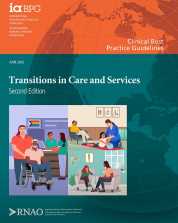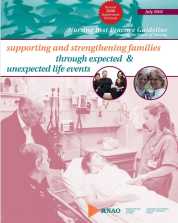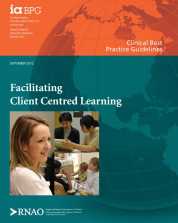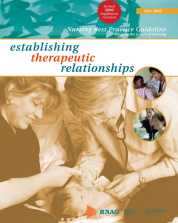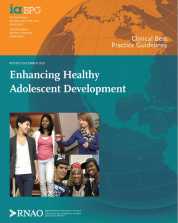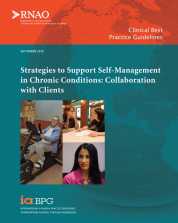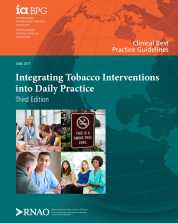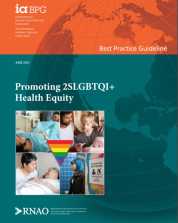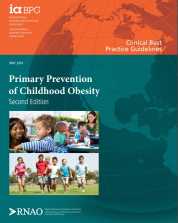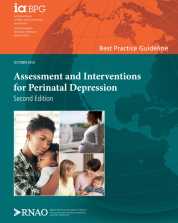The purpose of this best practice guideline (BPG) is to provide evidence-based recommendations for nurses and members of the interprofessional team, organizations and the health system. These recommendations support safe and effective transitions in care for pediatric and adult persons and their support network.
The purpose of this best practice guideline (BPG) is to assist nurses in promoting family health through interventions and supports provided during expected as well as unexpected life events. Expected life events may include birth, school, adolescence, aging, and death, while unexpected life events may include trauma/accidents, chronic illness, developmental delay and disability.
The aim of this best practice guideline (BPG) is to provide evidence-based recommendations for Registered Nurses, Registered Practical Nurses and other health-care providers to facilitate client-centred learning that promotes and enables clients to take action for their health.
The purpose of this best practice guideline (BPG) is to address the therapeutic relationship and its central importance to nursing practice. Effective nursing practice is dependent on an effective therapeutic relationship between the nurse and the client. The guideline addresses the qualities and capacities of an effective therapeutic relationship, the state of knowledge, and the knowledge needed to be effective in a therapeutic relationship.
The purpose of this best practice guideline (BPG) is to assist nurses working with youth in a variety of practice settings, i.e. schools, public health units, community health centres, adolescent clinics, hospitals, and in family practice. Recommendations are inclusive of adolescent development across diverse contexts (e.g. cultural, socioeconomic, structural, political.)
The purpose of this best practice guideline (BPG) is to provide evidence-based recommendations for registered nurses and registered practical nurses in self-management support. These recommendations identify strategies and interventions that enhance an individual’s ability to manage their chronic health condition.
The purpose of this best practice guideline (BPG) is to provide best practices for tobacco interventions for nurses and other health-care providers across all care settings, with evidence-based recommendations related to assessment and interventions for adults who use tobacco.
The purpose of this best practice guideline (BPG) is to provide nurses and other members of the interprofessional team with evidence-based recommendations on foundational, inclusive care practices for 2SLGBTQI+ people.
The purpose of this best practice guideline (BPG) is to provide nurses across all practice settings with evidence-based practice, education, system, organization and policy recommendations for the primary prevention of obesity in infants, preschool, and elementary-school-aged children.
The purpose of this best practice guideline (BPG) is to present evidence-based recommendations for nurses and the interprofessional team across all care settings to enhance the quality of their practices to support the reduced incidence of perinatal depression through the implementation of five components of care: routine screening, assessment, prevention, coordinated interventions, and evaluation.
